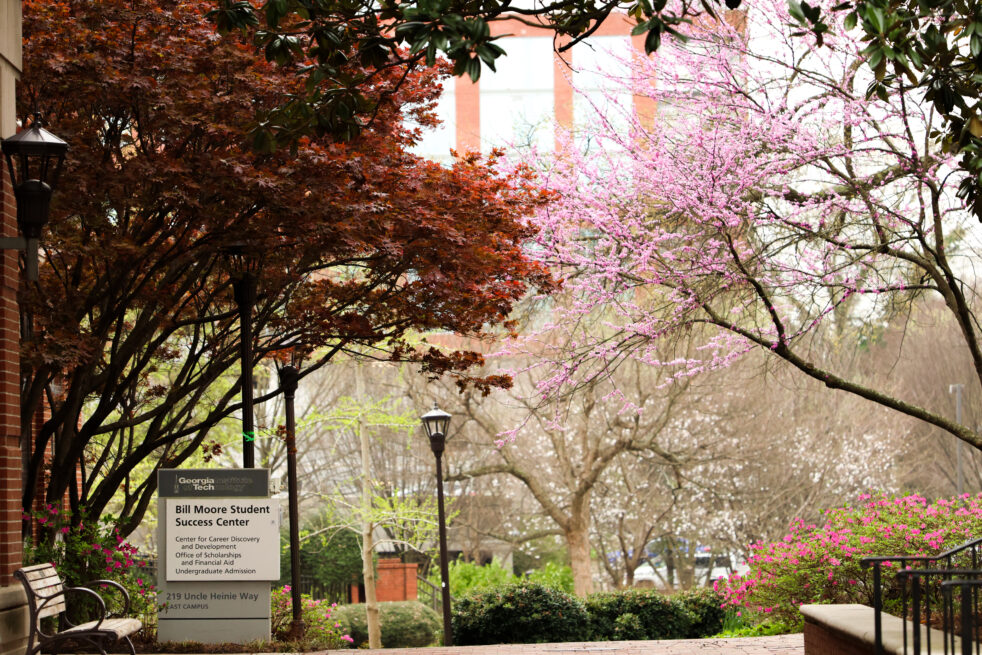In a push to increase Tech’s population of students from rural areas, the undergraduate admissions office has partnered with the Small Town and Rural Students (STARS) College Network.
The STARS College Network, now in its second year, partners with top colleges in the U.S. to ensure that students from rural and small-town America have the necessary resources and community to seek higher education at a university of their choice.
This summer, the STARS College Network has expanded its college partnerships from 15 universities to 32, including Tech in its new cohort. This expansion was largely supported by Trott Family Philanthropies, who will be investing more than $150 million to Tech over the next 10 years to support and recruit rural students.
This year, the incoming freshman class represents 112 out of 159 counties in Georgia, with 13% of the entering first-year population coming from towns in the U.S. classified as rural. The Undergraduate Admissions office says they want to see these numbers increase.
“21% of Georgia’s population lives in rural counties,” Mary Tipton Woolley, the Senior Associate Director of Undergraduate Admission, explained. “We want to amplify the message about exposing students, in the rural parts of the United States and Georgia, to our school and make sure that there is a pipeline to get them to Tech.”
Woolley described how the college recruitment process at Tech traditionally involves admissions officers engaging with students at various county college fairs, school events and The Peach State tour, a collaborative effort between University of Georgia, Georgia State University and Augusta University to recruit high school students.
For this upcoming admissions cycle, Tech has scheduled 43 probe fairs across different counties. The STARS College Network will allow an expansion to the recruitment process by supporting rural students through virtual panels and tours, college academic preparation and counselor workshops.
As a part of the “Tech Today” initiative, Tech will host high school counselors from rural counties in Georgia for a two-day program in Atlanta, allowing them to interact with various departments on campus. The program also includes sending GT counselors to rural counties to strengthen connections and recruitment efforts.
The undergraduate admissions office is in the process of screening resumes to find a STARS college network campus manager who will spend a majority of their time in rural counties in Georgia connecting with high school juniors, seniors and school staff to support students.
The admissions office hopes to set rural students up for success in the Tech admissions process. The program helps them do this by providing rural students with free courses and tutoring through Khan Academy and Schoolhouse to address knowledge gaps and prepare them for college level math classes.
“One of our biggest objectives is to meet students where they are. We want to think about how we can make sure that we are in rural high schools throughout the state connecting with students face-to-face and this program will allow us to do that even more,” Woolley said.
“The other piece is setting up first-year students to succeed here at Tech. That means helping to establish relationships with people who are going to have a big influence on them like academic advisors and teachers,” Woolley further explained.
The STARS College Network also gives rural students a way to find the school they want to attend via in-person visits, which has not always been the case for students like Kaeli Lawrence, a second-year SPP student at Tech who is a Glynn County native.
“Georgia Tech was not on my radar when I was applying to colleges until one of my teachers told me to look at their public policy program because I was interested in the technical aspect of policy. So, I researched the major online and looked at the school website,” Lawrence said.
Lawrence talked about where Tech could have supported her during the admissions process.
“The Tech counselors that came to our school mainly talked about STEM majors and our high school did not offer many STEM-related AP classes like AP Computer Science,” Lawrence expanded.
When asked about the potential impact of the STARS program, Kaeli was optimistic, but wants the program to become more expansive.
“There are so many more aspects that need to be implemented at all levels of education,” Lawrence explained, “Making sure that the outreach initiatives not only include counselors but also college students who come from similar backgrounds would make a big difference.”
Lawrence believes that this mentorship from upperclassmen with similar backgrounds could be very effective in helping convince those who are on the fence to apply to Tech, especially if they are unsure of their ability to succeed.
The expansion of the STARS College Network to include Tech represents a significant step toward increasing college access and success for students from rural and small-town communities.
Considering Tech’s tremendous economic impact on Georgia, the admissions office hopes that through the program, existing rural student feedback, and collaborative efforts, they can enrich both the Institute and the state.
